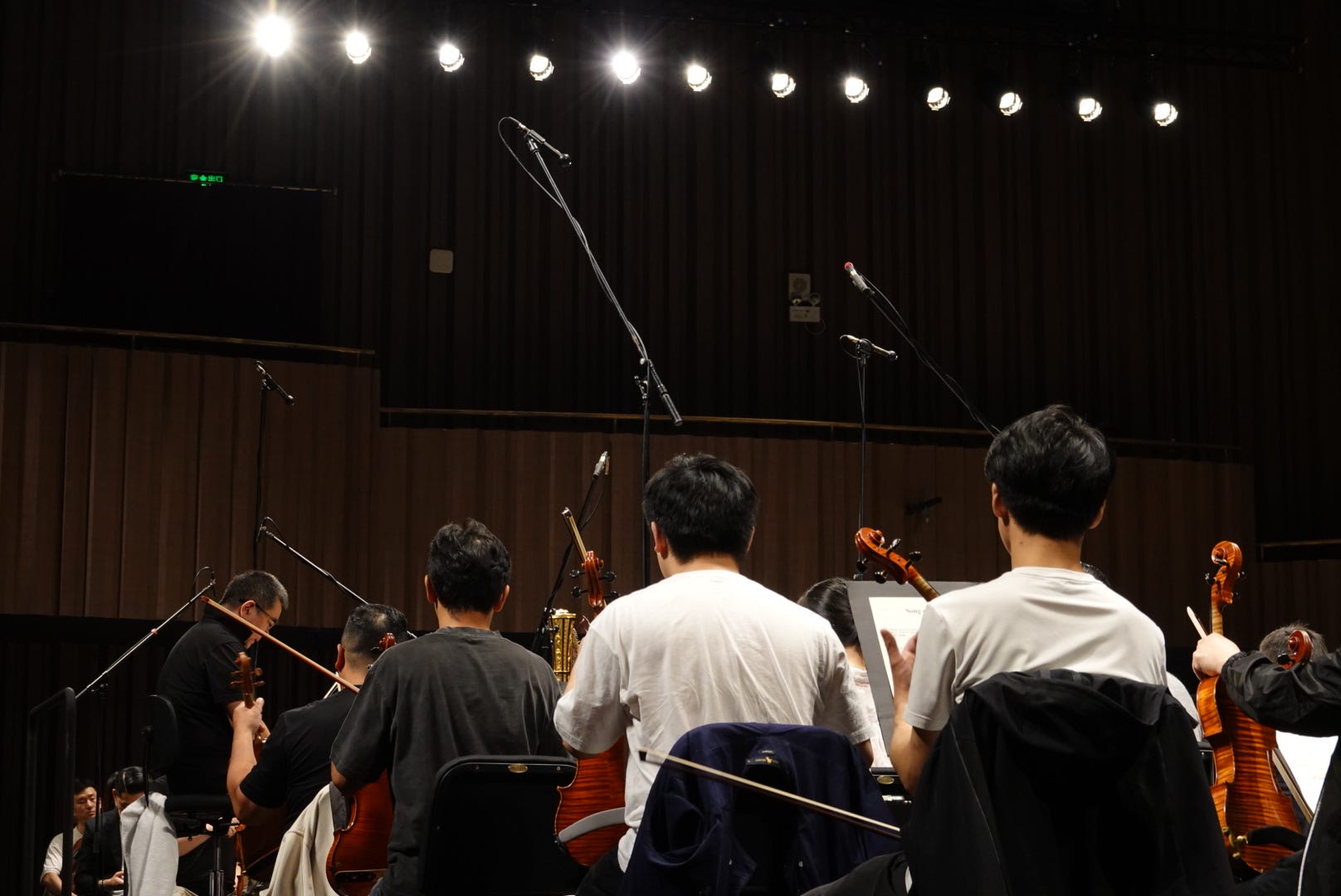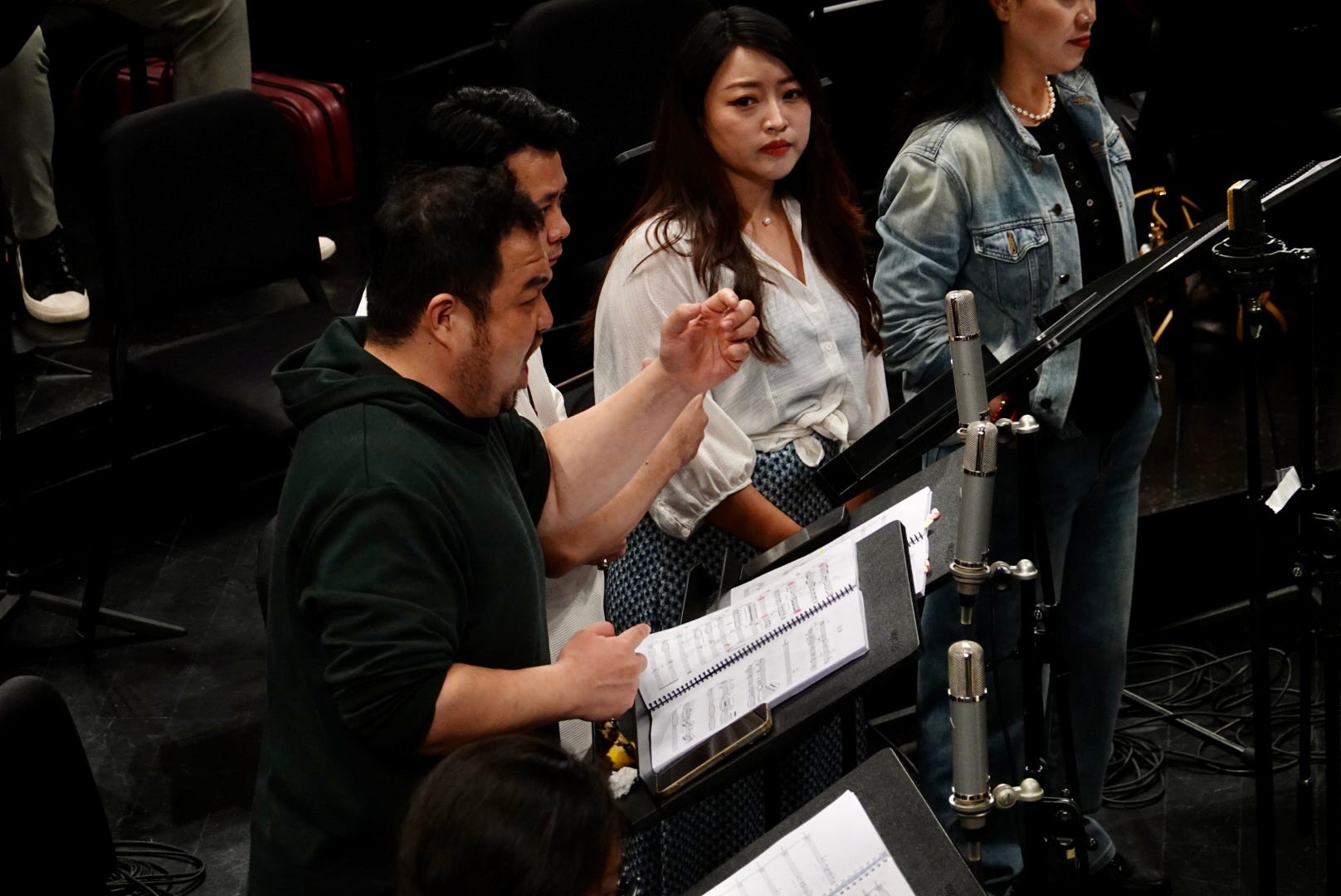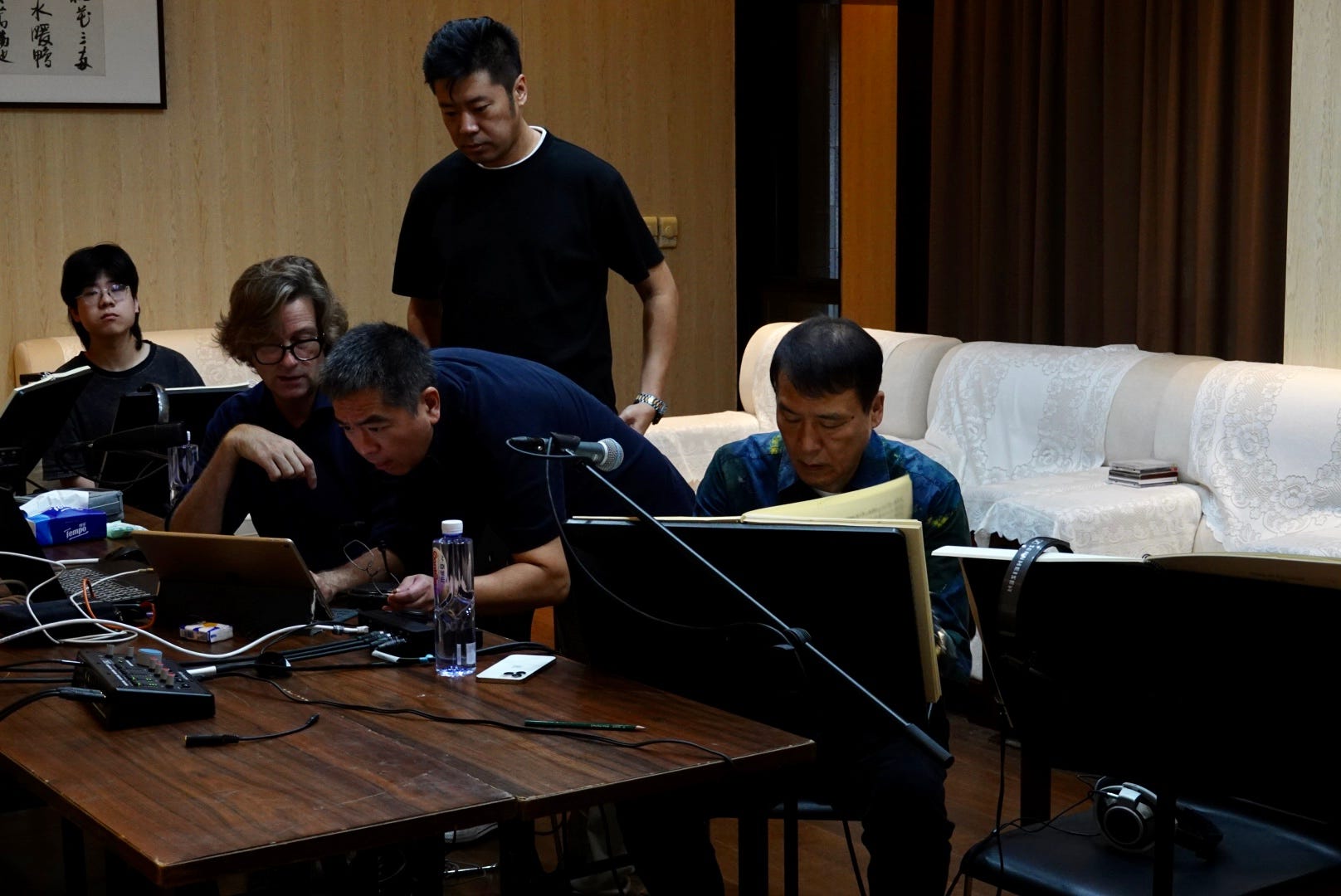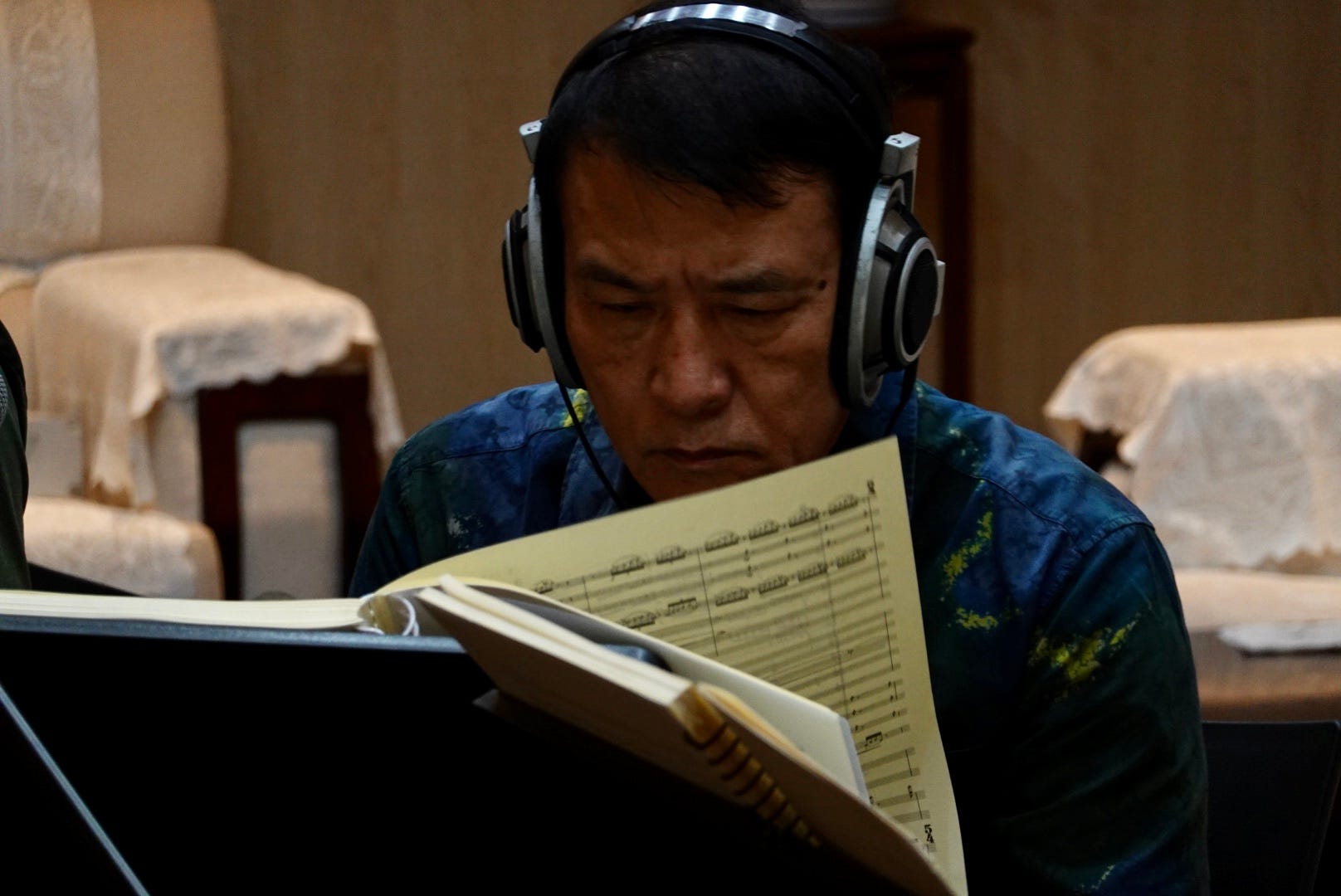All material found in the Press Releases section is provided by parties entirely independent of Musical America, which is not responsible for content.
Press Releases
Landmark Studio Recording of Xiaogang Ye’s “Song of Farewell” Wrapped Up in China
- Full forces of Hangzhou Phil and China National Opera Chorus
- First opera in China addressing LGBTQ undercurrents
- From pre-eminent mainstream composer Xiaogang Ye
- Leading soloists including tenor Xiahou Jinxu
- Engineered by Grammy Award winning producer
- The greatest opera studio recording seen in years
Fifteen years after its premiere, Xiaogang Ye’s opera Song of Farewell, dubbed as the first Chinese opera addressing LGBTQ psychological dimensions, has re-emerged with renewed vitality through a concert performance at the Hangzhou Grand Theatre on the evening of October 14th and a landmark studio recording project at the Zhejiang Conservatory of Music that just wrapped up. Presented in collaboration with the Hangzhou Philharmonic Orchestra, the project brought together the opera’s star studded cast and an international production team for an intensive four-day session, recording one act per day, under the baton of Yang Yang, Music Director of the Hangzhou Philharmonic, China National Opera and Beijing Symphony Orchestra.

The cast features tenor Xiahou Jinxu as the idealistic young dan performer, soprano Yu Guanqun as the woman whose arrival disrupts the emotional balance of the troupe, and baritone Wang Yunpeng as the elder artist torn between affection, jealousy, and loyalty. They were joined by the China National Opera Chorus from Beijing, whose nuanced presence deepened the work’s emotional texture.

The opera in concert, held in Hangzhou prior to the recording, marked the opera’s 15th anniversary and served as both artistic celebration and rehearsal in preparation for the studio sessions. “The concert was originally meant as a warm-up for the recording,” Ye recalled, “but the response was overwhelming.The audience was utterly silent, fully absorbed in the music. It proved that the opera still breathes with life after fifteen years.”

The grand opera, commissioned by the Beijing Music Festival in 2010, is loosely inspired by blockbuster romance Farewell My Concubine (1993), revisiting the theme of forbidden love between two male performers whose intimate bond is tested by the arrival of a woman within their Peking opera troupe in Nationalist-era Peking. Across four acts: Meeting, Promise, Wander and Farewell, loyalty, jealousy, suppressed desire and unrequited love among the trio unfold as art and life blur on and off the stage. The music has reached such popularity that the Shanghai Symphony Orchestra went on to commission a 40-minute orchestral suite from Ye in 2018. Song of Farewell Without Words was premiered by the SSO that year and a recording was subsequently released by NAXOS in 2024, also engineered by Jakob Händel.
Musically, Ye fuses Western operatic and symphonic writing with the distinct sonorities of a live Peking opera band and two traditional Peking opera singers, whose stylised voices and timbres lend ritualistic depth and cultural resonance. The result is a unique hybrid sound world that bridges East and West, classical and contemporary, realism and symbolism.
The studio recording, described by Ye as “one of the most ambitious projects of my career,” was a massive undertaking both logistically and artistically. With the entire cast and orchestra in residence at the Zhejiang Conservatory since October 16th, the team recorded the opera one act per day, maintaining the dramatic intensity of live performance while achieving the precision of studio work, with every note scrutinized. The result, Ye believes, sets a new benchmark for Chinese opera recording, perhaps the first of its kind in China, and one of the few comparable efforts in the world.

Reflecting on the project, Ye emphasised the long-term significance of recorded music: “Scores can be read but not heard. Only through recordings can a composer’s work be truly preserved and shared. Every great classical music piece has recordings. Without them, music risks vanishing into the vast sea of compositions.”
With eight albums already released, Ye views this recording as both a continuation and culmination of his artistic journey. “For me, recording is not just documentation,” he said. “It ensures the survival of the music, helps it reach wider audiences, and lets the world hear the voice of contemporary Chinese opera.”





 FEATURED JOBS
FEATURED JOBS

 RENT A PHOTO
RENT A PHOTO


